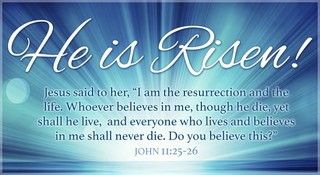- Recent Translations
- All Translations
John 11
Share
Settings
John 11 Commentary
Chapter 11
The sickness of Lazarus. (1-6) Christ returns to Judea. (7-10) The death of Lazarus. (11-16) Christ arrives at Bethany. (17-32) He raises Lazarus. (33-46) The Pharisees consult against Jesus. (47-53) The Jews seek for him. (54-57)
Verses 1-6 It is no new thing for those whom Christ loves, to be sick; bodily distempers correct the corruption, and try the graces of God's people. He came not to preserve his people from these afflictions, but to save them from their sins, and from the wrath to come; however, it behoves us to apply to Him in behalf of our friends and relatives when sick and afflicted. Let this reconcile us to the darkest dealings of Providence, that they are all for the glory of God: sickness, loss, disappointment, are so; and if God be glorified, we ought to be satisfied. Jesus loved Martha, and her sister, and Lazarus. The families are greatly favoured in which love and peace abound; but those are most happy whom Jesus loves, and by whom he is beloved. Alas, that this should seldom be the case with every person, even in small families. God has gracious intentions, even when he seems to delay. When the work of deliverance, temporal or spiritual, public or personal, is delayed, it does but stay for the right time.
Verses 7-10 Christ never brings his people into any danger but he goes with them in it. We are apt to think ourselves zealous for the Lord, when really we are only zealous for our wealth, credit, ease, and safety; we have therefore need to try our principles. But our day shall be lengthened out, till our work is done, and our testimony finished. A man has comfort and satisfaction while in the way of his duty, as set forth by the word of God, and determined by the providence of God. Christ, wherever he went, walked in the day; and so shall we, if we follow his steps. If a man walks in the way of his heart, and according to the course of this world, if he consults his own carnal reasonings more than the will and glory of God, he falls into temptations and snares. He stumbles, because there is no light in him; for light in us is to our moral actions, that which light about us to our natural actions.
Verses 11-16 Since we are sure to rise again at the last, why should not the believing hope of that resurrection to eternal life, make it as easy for us to put off the body and die, as it is to put off our clothes and go to sleep? A true Christian, when he dies, does but sleep; he rests from the labours of the past day. Nay, herein death is better than sleep, that sleep is only a short rest, but death is the end of earthly cares and toils. The disciples thought that it was now needless for Christ to go to Lazarus, and expose himself and them. Thus we often hope that the good work we are called to do, will be done by some other hand, if there be peril in the doing of it. But when Christ raised Lazarus from the dead, many were brought to believe on him; and there was much done to make perfect the faith of those that believed. Let us go to him; death cannot separate from the love of Christ, nor put us out of the reach of his call. Like Thomas, in difficult times Christians should encourage one another. The dying of the Lord Jesus should make us willing to die whenever God calls us.
Verses 17-32 Here was a house where the fear of God was, and on which his blessing rested; yet it was made a house of mourning. Grace will keep sorrow from the heart, but not from the house. When God, by his grace and providence, is coming towards us in ways of mercy and comfort, we should, like Martha, go forth by faith, hope, and prayer, to meet him. When Martha went to meet Jesus, Mary sat still in the house; this temper formerly had been an advantage to her, when it put her at Christ's feet to hear his word; but in the day of affliction, the same temper disposed her to melancholy. It is our wisdom to watch against the temptations, and to make use of the advantages of our natural tempers. When we know not what in particular to ask or expect, let us refer ourselves to God; let him do as seemeth him good. To enlarge Martha's expectations, our Lord declared himself to be the Resurrection and the Life. In every sense he is the Resurrection; the source, the substance, the first-fruits, the cause of it. The redeemed soul lives after death in happiness; and after the resurrection, both body and soul are kept from all evil for ever. When we have read or heard the word of Christ, about the great things of the other world, we should put it to ourselves, Do we believe this truth? The crosses and comforts of this present time would not make such a deep impression upon us as they do, if we believed the things of eternity as we ought. When Christ our Master comes, he calls for us. He comes in his word and ordinances, and calls us to them, calls us by them, calls us to himself. Those who, in a day of peace, set themselves at Christ's feet to be taught by him, may with comfort, in a day of trouble, cast themselves at his feet, to find favour with him.
Verses 33-46 Christ's tender sympathy with these afflicted friends, appeared by the troubles of his spirit. In all the afflictions of believers he is afflicted. His concern for them was shown by his kind inquiry after the remains of his deceased friend. Being found in fashion as a man, he acts in the way and manner of the sons of men. It was shown by his tears. He was a man of sorrows, and acquainted with grief. Tears of compassion resemble those of Christ. But Christ never approved that sensibility of which many are proud, while they weep at mere tales of distress, but are hardened to real woe. He sets us an example to withdraw from scenes of giddy mirth, that we may comfort the afflicted. And we have not a High Priest who cannot be touched with a feeling of our infirmities. It is a good step toward raising a soul to spiritual life, when the stone is taken away, when prejudices are removed, and got over, and way is made for the word to enter the heart. If we take Christ's word, and rely on his power and faithfulness, we shall see the glory of God, and be happy in the sight. Our Lord Jesus has taught us, by his own example, to call God Father, in prayer, and to draw nigh to him as children to a father, with humble reverence, yet with holy boldness. He openly made this address to God, with uplifted eyes and loud voice, that they might be convinced the Father had sent him as his beloved Son into the world. He could have raised Lazarus by the silent exertion of his power and will, and the unseen working of the Spirit of life; but he did it by a loud call. This was a figure of the gospel call, by which dead souls are brought out of the grave of sin: and of the sound of the archangel's trumpet at the last day, with which all that sleep in the dust shall be awakened, and summoned before the great tribunal. The grave of sin and this world, is no place for those whom Christ has quickened; they must come forth. Lazarus was thoroughly revived, and returned not only to life, but to health. The sinner cannot quicken his own soul, but he is to use the means of grace; the believer cannot sanctify himself, but he is to lay aside every weight and hinderance. We cannot convert our relatives and friends, but we should instruct, warn, and invite them.
Verses 47-53 There can hardly be a more clear discovery of the madness that is in man's heart, and of its desperate enmity against God, than what is here recorded. Words of prophecy in the mouth, are not clear evidence of a principle of grace in the heart. The calamity we seek to escape by sin, we take the most effectual course to bring upon our own heads; as those do who think by opposing Christ's kingdom, to advance their own worldly interest. The fear of the wicked shall come upon them. The conversion of souls is the gathering of them to Christ as their ruler and refuge; and he died to effect this. By dying he purchased them to himself, and the gift of the Holy Ghost for them: his love in dying for believers should unite them closely together.
Verses 54-57 Before our gospel passover we must renew our repentance. Thus by a voluntary purification, and by religious exercises, many, more devout than their neighbours, spent some time before the passover at Jerusalem. When we expect to meet God, we must solemnly prepare. No devices of man can alter the purposes of God: and while hypocrites amuse themselves with forms and disputes, and worldly men pursue their own plans, Jesus still orders all things for his own glory and the salvation of his people.


